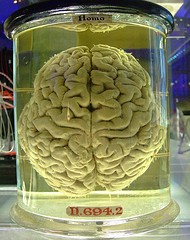Cigarettes or Heroin – Can Your Brain Tell the Difference?
Deep in your mind, in the area that sends out pleasure signals to the body, heroin and cigarettes seem to do pretty much the same thing.
Daniel McGehee, Professor of Anesthesia and Critical Care at the University of Chicago Medical Center, says – maybe not.
Obviously, the initial effects of nicotine and opiate type drugs differ drastically, but researchers examining the dopamine (the brain's feel-good chemical) released after the administration of the two drugs, were surprised to learn that the brain seems to feel the reward effects of the two drugs equally strongly.
McGehee explains, "We found remarkable overlap between the effects of nicotine and opiates on dopamine signaling within the brain’s reward centers."
In animal model studies, researchers examined dopamine released in the nucleus accumbens of the brain (the brain's pleasure and reward center) and found that within this area of the brain, the dopaminergic responses were almost identical.
Previous comparative studies of nicotine and opiates, in the ventral tegmental area of the brain (another dopamine and reward area) had produced similar findings.
Changes in dopamine functioning in the brain are associated with addiction and cravings, and researchers explain that having a better understanding of the effect of nicotine in the nucleus accumbens may allow for the development of more effective treatment options. They also stress that their study results further underscore the seriousness of a nicotine addiction, that nicotine creates fundamental physiological addictions, and that smokers wanting to quit do face an arduous task in overcoming their dependency.
The complete study results can be found in the Feb. 13 issue of The Journal of Neurosicence.


